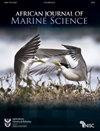Estimating the economic damage caused by jellyfish to fisheries in Morocco
IF 1.4
4区 生物学
Q3 MARINE & FRESHWATER BIOLOGY
引用次数: 1
Abstract
Although there is great fluctuation in annual recordings of jellyfish along the Moroccan Mediterranean coast and an absence of long-term datasets, there is a common perception that jellyfish numbers are rising. To better understand the possible economic losses sustained by Moroccan fisheries caused by the effects of jellyfish, we undertook a survey among fishers at the Atlantic port of Tangier and the Mediterranean port of M’diq. We focused on fishers’ perceptions about jellyfish blooms in Moroccan waters and whether and how blooms affect their fishing activities. Our findings confirm that blooms have negatively affected fishing activities over the past decade in the Moroccan Mediterranean, but that the degree of impact varies considerably by fishery and location. Of the total respondents at M’diq, 86% reported that jellyfish reduced their seasonal revenue. The species mainly responsible for these losses were Pelagia noctiluca, followed by Rhizostoma pulmo and Chrysaora hysoscella. The annual direct damage caused by jellyfish has been estimated to be as high as US$3.26 million per year for the fleet at the port of M’diq. When jellyfish outbreaks occur, fishers must spend time repairing nets damaged by jellyfish, which adds more than 1 783 person-hours of work per year.估计水母对摩洛哥渔业造成的经济损失
尽管摩洛哥地中海沿岸水母的年度记录波动很大,而且缺乏长期数据集,但人们普遍认为水母数量正在上升。为了更好地了解水母的影响可能给摩洛哥渔业带来的经济损失,我们对大西洋丹吉尔港和地中海姆迪克港的渔民进行了一项调查。我们重点关注了渔民对摩洛哥水域水母水华的看法,以及水华是否以及如何影响他们的捕鱼活动。我们的研究结果证实,在过去十年中,水华对摩洛哥地中海的渔业活动产生了负面影响,但影响程度因渔业和地点而异。在M'diq的所有受访者中,86%的人表示水母减少了季节性收入。造成这些损失的主要物种是夜光Pelagia noctiluca,其次是Rhizostoma pulmo和Chrysora hyscocella。据估计,水母每年对M'diq港船队造成的直接损失高达326万美元。当水母爆发时,渔民必须花时间修复被水母损坏的渔网,每年增加1783人时的工作。
本文章由计算机程序翻译,如有差异,请以英文原文为准。
求助全文
约1分钟内获得全文
求助全文
来源期刊

African Journal of Marine Science
生物-海洋与淡水生物学
CiteScore
2.60
自引率
16.70%
发文量
17
审稿时长
6-12 weeks
期刊介绍:
The African (formerly South African) Journal of Marine Science provides an international forum for the publication of original scientific contributions or critical reviews, involving oceanic, shelf or estuarine waters, inclusive of oceanography, studies of organisms and their habitats, and aquaculture. Papers on the conservation and management of living resources, relevant social science and governance, or new techniques, are all welcomed, as are those that integrate different disciplines. Priority will be given to rigorous, question-driven research, rather than descriptive research. Contributions from African waters, including the Southern Ocean, are particularly encouraged, although not to the exclusion of those from elsewhere that have relevance to the African context. Submissions may take the form of a paper or a short communication. The journal aims to achieve a balanced representation of subject areas but also publishes proceedings of symposia in dedicated issues, as well as guest-edited suites on thematic topics in regular issues.
 求助内容:
求助内容: 应助结果提醒方式:
应助结果提醒方式:


